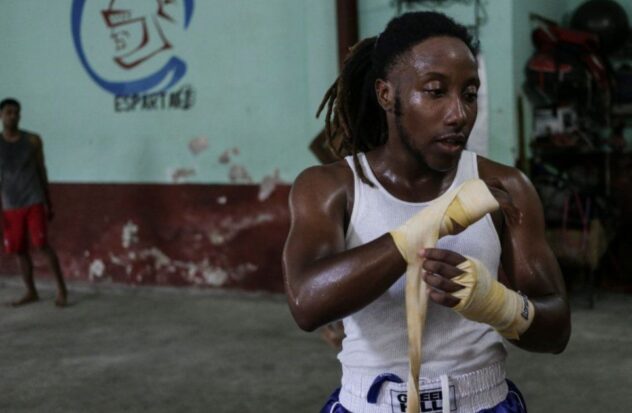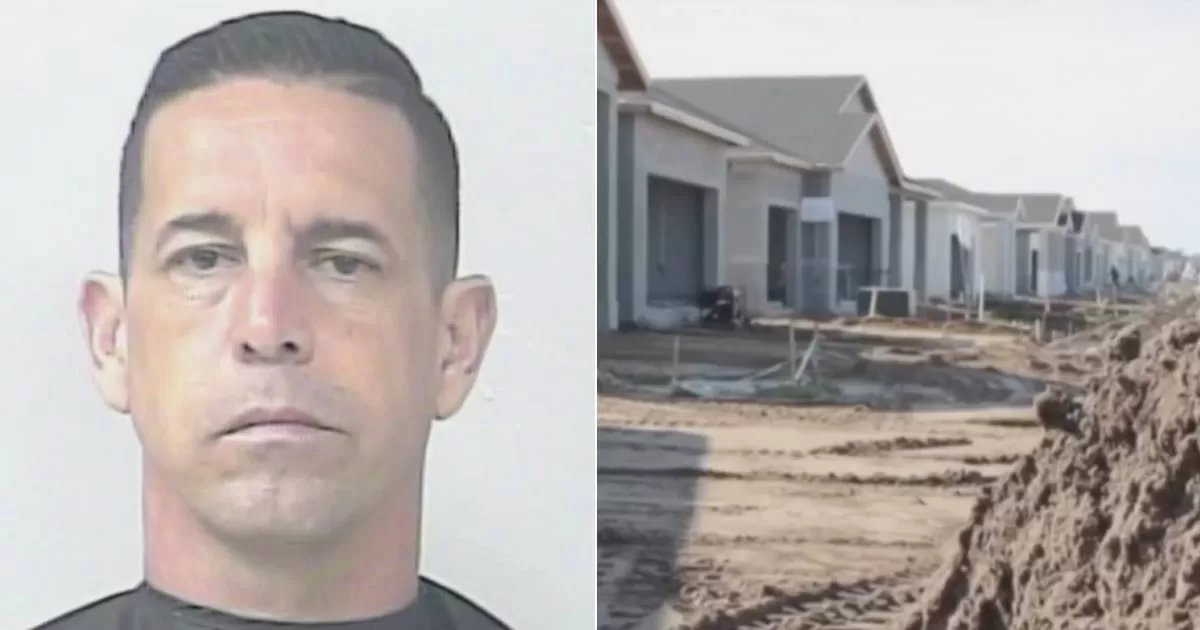Ely Malik Reyes Núñez, a 26-year-old transgender man with a degree in physical education, competed in Sanda, a contact sport that requires skill and strength and combines martial arts such as Kung Fu with kickboxing, thus opening the most recent chapter in the progress towards inclusion of LGBT communities on the island.
“For this debut I spent around three months training twice a day,” he said in an interview with The Associated Press, while offering a coffee at his home in the municipality of Regla, before going to the nearby sports complex, where he practices. .
On June 1, Reyes climbed the board without ropes that characterizes his sport, to fight, for the first time, in the men’s 60/65 kilo category.
In his home – with a living room painted in bright colors and adjacent to a perfectly fitted kitchen – the athlete lives with his girlfriend and to cover his household expenses, since his discipline is not paid, he works in the repair of air conditioners. with his brother-in-law.
“At least in my academy, the training that is done is not a game, it is training at a high level and with a lot of perseverance,” he commented proudly.
She has been receiving hormones for two years but does not want complete genital reassignment surgery.
For his transition, he initially visited the Sexual Education Center (Cenesex) a little more than four years ago and met with a psychologist. Then he saw endocrinologist doctors and took tests to obtain what Cubans call the “tarjetón”, a card to buy medications in pharmacies and which allowed Reyes to get the hormones necessary for his transition.
In recent times, and due to the shortage of supplies in the country, he even had to turn to people who brought him testosterone from abroad, but he never gave up. “I am an athlete, I cannot leave my hormones aside… I have to be up to date,” said Reyes.
Now, after a year of initiating the process to change his name, Reyes can legally be called whatever he wishes.
“My mother gave me an X name at the time and I transformed it,” added the athlete. “I changed it (on his ID card) last year, after a lot of struggle, I changed it so I could graduate. “I didn’t want my (university) degree with a name that didn’t represent me.”
Reyes acknowledged that although she has always commanded respect for her gender identity, she has perceived discrimination, especially in the suspicious glances of many people on the street. “Educating society is not done in two days,” she said.
An example of what is still missing, the athlete explained, is his own identity card: although it now shows the name he chose, it still retains an “F” for feminine, since Cuban legislation establishes that to change this aspect in the document the person should have a complete genital reassignment.
Reyes indicated that for him, a solution would be the approval of a Gender Law, but activists consulted by AP pointed out that the obstacle could be resolved sooner, in the new Civil Registry law that is being worked on in the National Assembly of People’s Power – the Parliament —which would allow people to change the gender of their ID or eliminate this box.
Both the updating of the standard for Civil Registry and the explicit right to gender identity are possible, after the approval of the Constitution in 2019, which subsequently gave way to a Family Code approved in 2022—through a plebiscite—and which, among others, allowed equal marriage, the adoption of children by gay couples and surrogacy.
This legislation and the recognition of sexual rights in recent decades, gave a radical turn to the limitations that Cuba—and many countries—imposed on the LGBT community in the last century.
However, the referendum on the Family Code, widely debated and approved by the vast majority, also exposed a fragment of society with strong roots in its colonial and patriarchal past. Even groups of evangelicals rejected the Code and former veterans of the socialist revolution did not consent to the inclusions.
And although Reyes’ identity card formally identifies her as a female, for now, the sports authorities decided to accept her male status, based on her hormone treatments, medical reports and her self-identification, and consequently allow her to participate in the men’s category in the competition held at the beginning of June by the Cuban Fighters League.
The registration management was done by coach Frank Cazón Cárdenas.
“It’s something new. “It is a challenge that I have taken on with a lot of love,” Cazón, 50, also president of the Sanda Community in Cuba, told the AP. He had known Reyes since childhood. “Accepting him (Reyes) and seeing him as what he really wants to be and making his dream come true is a challenge.”
The instructor explained that he had worked on two levels: on the one hand, speaking with the men’s Sanda team, with whom Reyes was to train for his fight; and on the other, knocking on all doors to obtain approval from the powerful Sports Institute (Inder), the agency that officially directs all policies in this area and which finally authorized Reyes’ participation in the men’s category.
Both Cazón and his pupil acknowledged being aware of the global sports controversy over the inclusion of transgender athletes. The most notorious case is that of the American swimmer Lia Thomas, whose participation in the women’s category, as a transgender woman, raised questions about the possible disadvantages that other competitors could have compared to a colleague who was born a man.
Reyes’ situation is reversed: her efforts are aimed at competing with male athletes, so she must make a greater effort.
“The main objective, which was victory, was not achieved,” said Cazón, but “the parameters that we had set for his training, his development from the physical and technical aspect, were achieved; and we continue working in that direction.”
From the perspective of the LGBT community, Reyes’ participation in the fight was hailed as part of the struggles for diversity on the island.
“It was only a matter of time before it happened,” the INDER’s authorization for a transgender athlete to participate in an official competition on the island, Francisco “Paquito” Rodríguez Cruz, a well-known and veteran LGBT rights activist in Cuba, told AP. “Because in reality it is the logical consequence of everything that has been done in the last 15 or 20 years,” he added.
“Obviously, all of this is a cultural process of change that is still controversial,” said Rodriguez. “Women’s boxing recently began (in Cuba), which was also a taboo for a long time. So there are issues at play… in this area of sport that we cannot ignore.”
Source: AP


